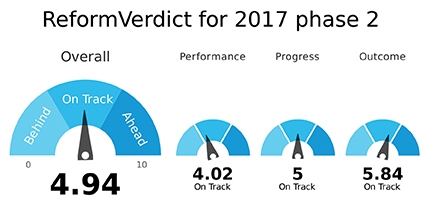ReforMeter – Tracking SME & Capital Market Development Reforms
ReforMeter is implemented by ISET Policy Institute and supported by USAID G4G. Our goal is to generate reform progress analysis for policy making and public dialogue, and thereby promote informed debate about reform priorities and policy decisions, improve accountability and help build trust between the government, the private sector and the general public. Five reforms are currently being evaluated by the ReforMeter: Agricultural Development, SME and Innovation Development, Capital Market Development, Pension Reform Vocational Education and Training Reform.
Each reform is evaluated, twice per year, by a group of stakeholders - 15 individuals not affiliated with the Government of Georgia but directly affected by the reform in question. The entire group of stakeholders are convened at ISET in order to review the results of the government survey as well as objective data and information about reform outcomes, which are collected and analyzed by the Project Team.
The Government Survey measures progress in the implementation of selected reforms based on indicators and timetables agreed upon with the implementing agencies.
Objective outcome indicators collected and analyzed by the Project Team measures the outcomes and impacts of each reform.
Each member of the group provides an anonymous quantitative assessment of the reform. Stakeholders answer three questions (each to be scored on a 0-to-10 scale):
1. What is your assessment of Georgia’s current performance in the area of [reform name]?
2. Is the economic reform agenda in the area of [reform] progressing as expected?
3. Is the economic reform likely to deliver adequate results?
The total score for each reform is calculated as a simple average of individual assessments.
The overall assessment of the reform process is automatically provided through the ReformVerdict – a summary score, derived as an average of scores assigned to each reform. The score is adjusted on a monthly basis, following monthly stakeholder meetings.
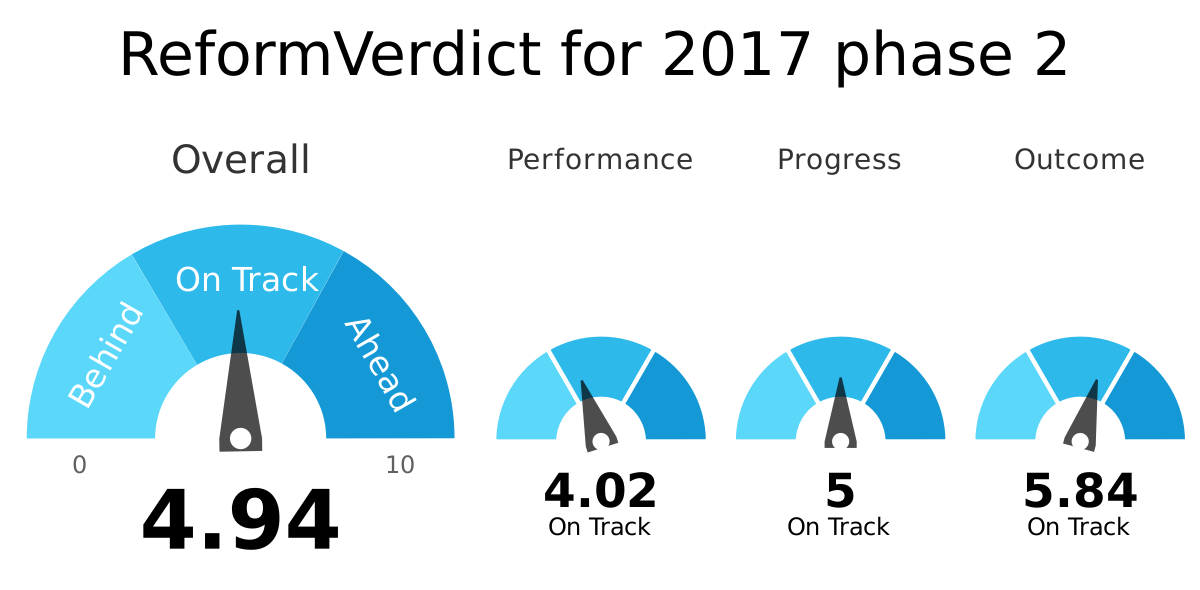
Below we present results of the most recent assessments of the following reforms: SME/Innovation Development and Capital Market Development.
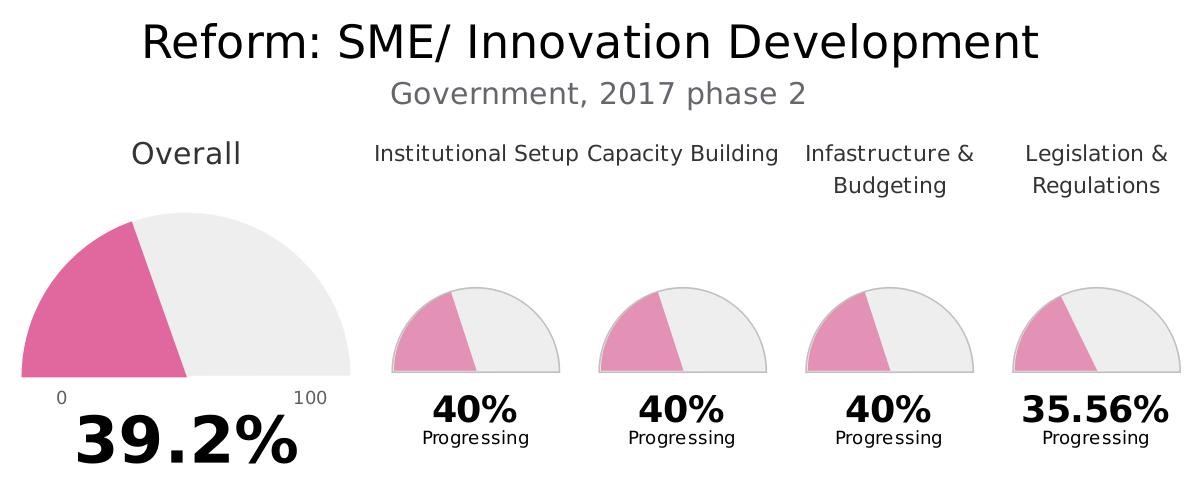
Second Phase of the SME/Innovation Development Reform assessment was conducted on February 2, 2018. Based on the government survey, 39.2% of the reform, which is planned to be finalized by 2020, has been implemented. In the first phase, this indicator was 24.7%. It is notable that the rate of progress in the areas of institutional organization, capacity building and infrastructure are similar – in all of these areas, 40% of the reform has been implemented. It is noteworthy that the target indicators set by the strategy for 2020 has been already achieved.
It should be emphasized that Enterprise Georgia, together with Good Governance Fund and PwC, has implemented a project targeted at increasing the number of SMEs in Georgia. This project also involves linking local entrepreneurs with international entrepreneurs. Last year Enterprise Georgia carried out research, and based on the results of this research, hotel and movie components were added to the program, “Produce in Georgia.”
In the area of capacity building, teaching of entrepreneurship in vocational education centers has been improved. The subject of entrepreneurship has been added to vocational center programs, and in addition, the module itself has been improved and the qualifications of entrepreneurship lecturers have been enhanced.
It is also notable that there is more statistical data on the SME sector; in particular, research on the weaknesses of the SME sector has been carried out. In addition, the studies “ICT Usage in Enterprises” and “ICT Usage in Households” are carried out on a regular basis.
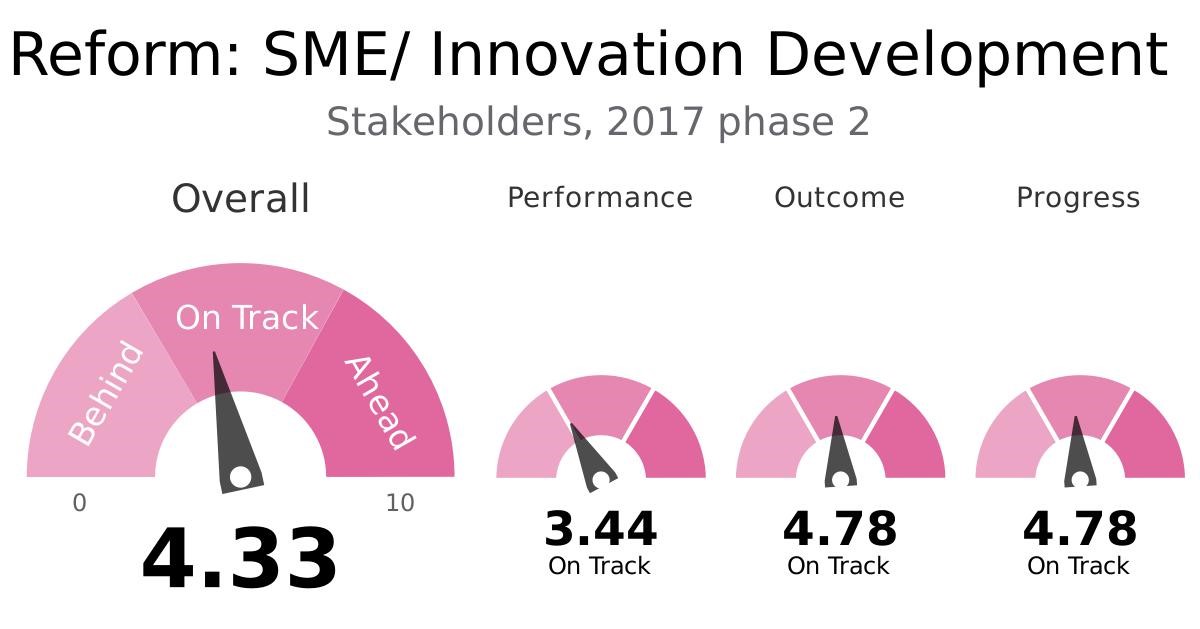
It is important to highlight the most important issues mentioned by the stakeholders:
The number of patent and useful model applications submitted to Sakpatenti is very low and is decreasing annually. Also, there are no links between the science and private sectors, which means that the relevant science is developing mainly in a fundamental direction - not applied.
The fact that Shota Rustaveli Foundation provides science grants on different levels is worth noting; however, the volume of the grants is very small and they cannot make any significant impact on the development of science in the country. However, even under such financing conditions, it is necessary to research which areas are financed, and how this funding contributes to the promotion of applied science.
The National Statistics Office of Georgia has changed the definition of SME to be in line with EU methodology. However, transition to the new system is gradual, and this complicates the comparison of statistical data during transition period. Starting in 2018, all entities should shift to the new methodology, which will enable us to compare Georgia with other countries.
Georgia’s Innovation and Technology Agency (GITA) also plans to increase private sector involvement in ongoing projects. Involvement implies engaging the private sector in projects, and funding them in exchange for development and expansion of the private sector’s infrastructure.
As there is a lack of innovative products on the local market, as well as export barriers, it is necessary to encourage innovative products within the country and increase their share in state procurement.
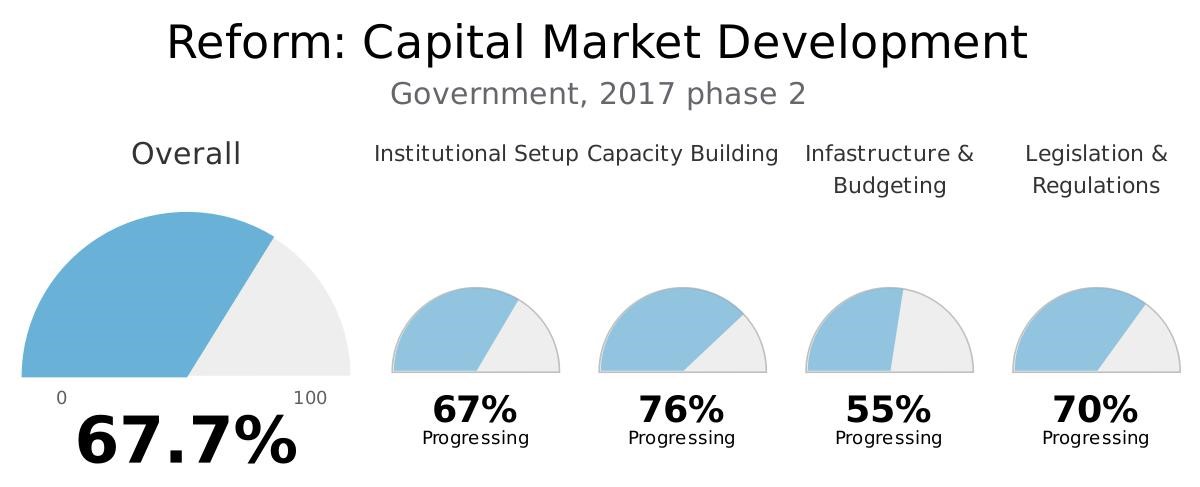
On March 12 2018, the implementation of a capital market development strategy was evaluated during the second phase of ReforMeter. Government research revealed that at this stage, 67.7% of the reforms have been implemented. In Phase I, this indicator stood at 51%.
The biggest progress was achieved in the development of legislative framework. Last year, together with other important activities, the German ranking agency Scope was added to the list of agencies (Moodys, S&P and Fitch) recognized by the National Bank of Georgia, which implies that the NBG will consider reliable rankings given by this body to the securities offered as collateral to the NBG.
With help from IMF experts, a set of tax reforms were developed which imply taxing various financial instruments according to the best international practices. In addition, taxation of instruments such as derivatives, repo and securities lending will be improved. Pension reform is also a part of the capital market development plan; the legislative package for pension reform is already prepared.
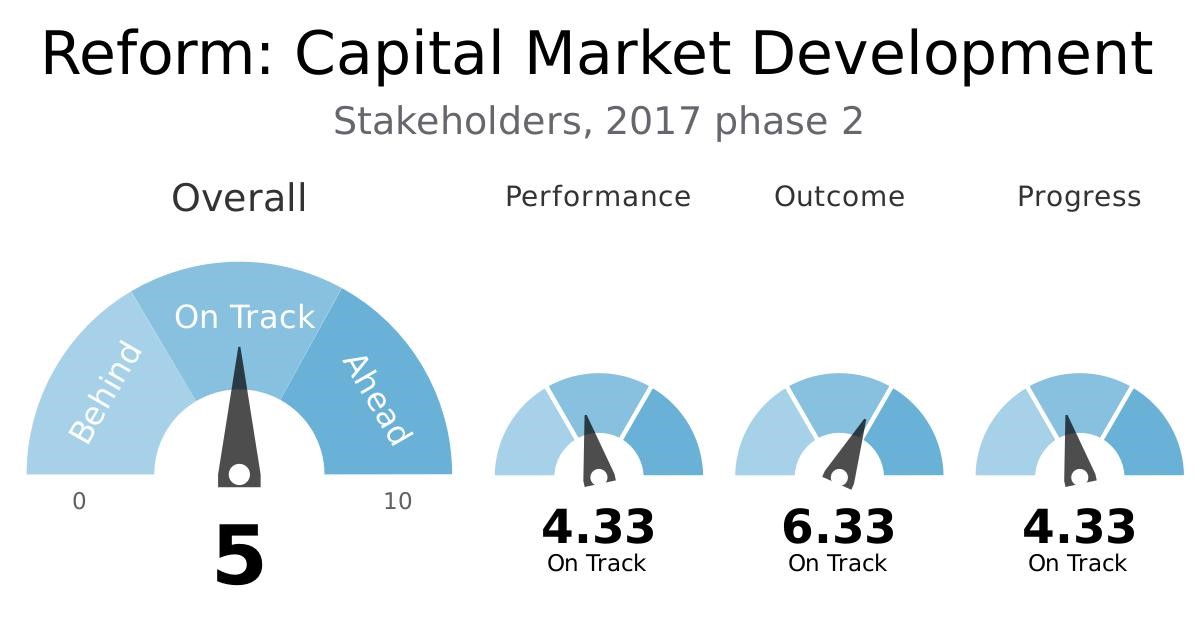
Together with stakeholders, Deputy Minister of Finance Nikoloz Gagua and representatives of the National Bank of Georgia participated in a discussion wherein several important issues regarding the implementation of the reforms were voiced, in particular:
The National Bank of Georgia believes that it is necessary to improve the legislative and regulatory framework of the capital market at the initial stage. In addition, harmonization with EU legislation is in progress, and this process is planned to be finalized by 2024.
In order for Georgia to become a financial hub, it is necessary to obtain a competitive advantage. This can be achieved, for example, by creating a liberal tax environment and improving infrastructure. Focus should also be placed on neighboring countries in order to integrate them in Georgia’s financial market. However, the first stage objective is to develop the local market.
Low liquidity in the financial markets and low financial literacy remain main challenges for capital market development in the country. A planned pension fund will likely provide liquidity and create demand on the market. Therefore, it is critical that pension funds are invested in Georgia, in securities denominated in GEL.
Outcome indicators measuring government reform effectiveness remain significantly below the benchmarks for 2018 specified in the Capital Market Development Strategy.
